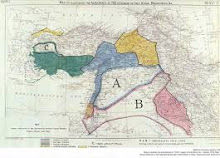This blog will include random thoughts linked one way or another - often at several steps removed - with the person and/or ideas of Karl Pearson - universally recognised as 'KP', and one of the few persons generally defined by just two initials. ('GBS' is 50% weaker.)
'Peregrination' means not just a rambling (this was the meaning I ascribed to it - rambling is a mode of talking as well as a way of walking: thus giving a completely new meaning to the "Ramblers Association"). Peregrination is also a journey, indeed even a pilgrimage. All three meanings - rambling, journey, pilgrimage - are germane to the way my interest in KP has developed.
Pearson's interests ranged far and wide, especially in his younger years (chaptered as "Lehrjahre of a Poetic Wrangler" in Porter's biography of KP, reflecting KP's chapter "Lehrjahre and Wanderjahre" in his own biography of Galton). Galton wandered further, wider and earlier than Pearson, but KP was no slouch for his day. Maybe he wanted to get away from UK domesticity at Cambridge and Hampstead? (His uncle however was in India in 1859 - not that it did him much good, as he died at sea on his way home - not many people know this" - see his gravestone at Crambe.)
Pearson's intellectual Wanderungen created problems and adventures for this ardent member of the KPFC (Karl Pearson Fan Club), as it leads to such a divergent range of materials - medieval theology, German folk-theatre, art, epistemology, etc.., etc.. It is remarkable in all this how the discourse of commentators so often slips naturally into germanics -
Levine's Dying to Know has a chapter on Pearson ("Karl Pearson and the Romance of Science"), as does Herbert's Victorian Relativity ("Karl Pearson and the Human Form Divine"). (I have not yet seen the latter, other than at GoogleBooks.)
Levine (2002, p13) reports how his book's "animus ... changed as it lived through at least a decade of reflection." Starting life as a "critique ... of the impossible scientific ideal of disinterested scientific knowledge", it ended discontented at today's complacency, which refuses to accept "not only the possibility of objectivity but of the good faith of quests for it .... '(O)bjectivity' in much academic discourse has become a curse word ..."
I was in the USA recently, and was fortunate enough to meet up with Levine. It is interesting how professors of literature, germanics and women's studies all include Pearson within their remit.
Tuesday, 15 January 2008
Subscribe to:
Post Comments (Atom)

No comments:
Post a Comment